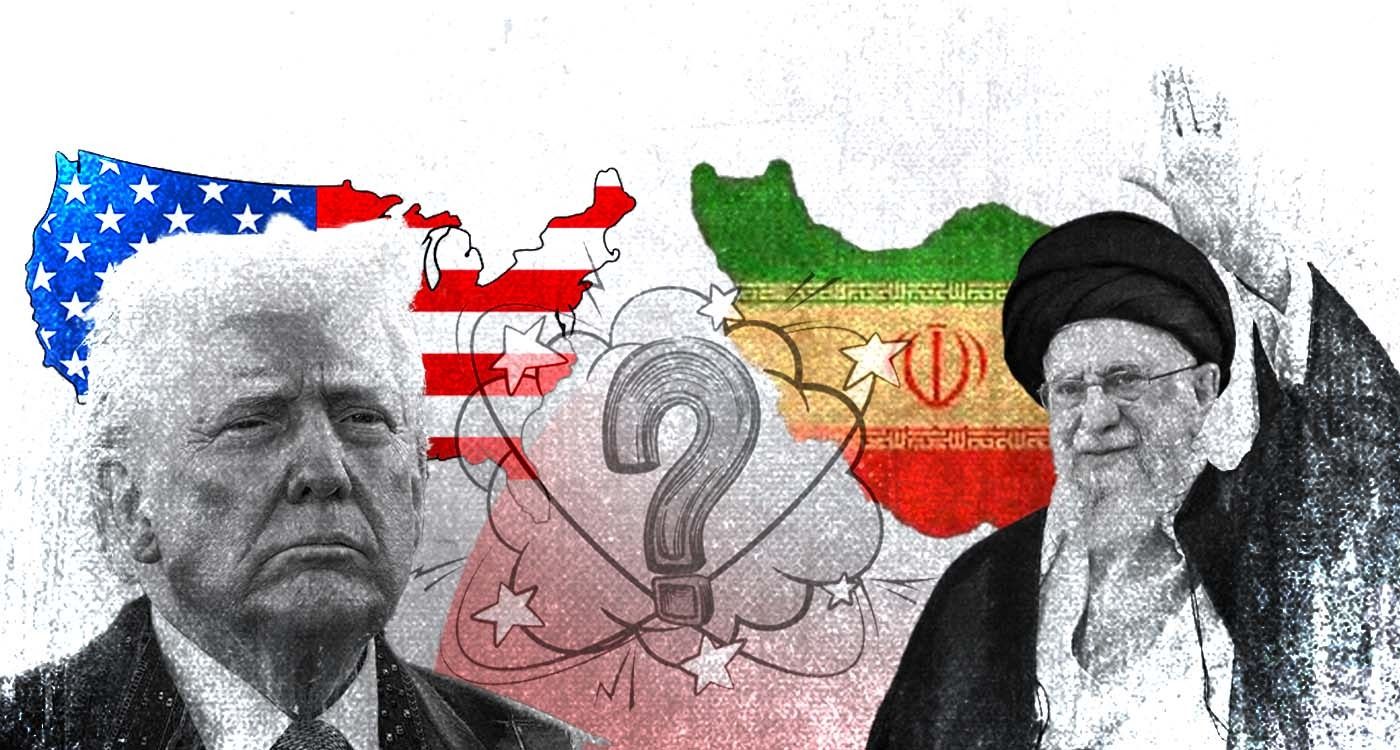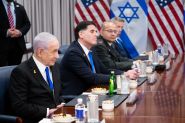- Home
- Middle East
- US-Iran: What Is Next?

©This is Beirut
While most international media are focused on what will happen today or this week between America and Iran, the real story is much bigger—the complete turning of the tables on Iran. While the headlines focus on whether Trump's ceasefire will hold, too many commentators are losing sight of the fact that Iran is trying to surrender (without saying so) before it suffers further humiliating defeats. Of course there will be a ceasefire; Iran cannot take much more, and Israel has reached its stated purpose of eliminating for now the prospect of an Iranian nuclear weapons program. The issue is: what happens next strategically?
In the past, it was Iran and its proxies that too often set the pace and agenda of peace and war in the Middle East. It was Iran that cast its nuclear shadow over its neighbors. It was Iran's threats – and American weakness – that compelled Arab states to hedge their policies and avoid provoking the beast.
All of that has been shifting since October 2023, but in a few hours last weekend America's president and military cemented the geo-strategic shift in power in the Middle East away from Iran. For now, there is nothing Iran can do that will restore its ability either to defend itself or project power in the region. Iran is out of realistic options except to bring the conflict to an end. It will then try to lie low, hoping America will lose interest, as it too often has in the past, enabling Iran to slowly but surely regain its power and ability to menace its neighborhood.
The question is not what Iran will do next; it is, what will America and its partners do to solidify the change of fortunes? Iran is at the weakest point it has been since 1979. The legitimacy of the clerical regime is gone. The supreme leader and the IRCG command structure that sustained him made colossal blunders and proved incapable of doing the very thing they promised: to deter attacks and defend Iran from foreign aggression. Instead, they brought it on and have been decimated.
It is hard to see how Iran's leadership survives. But Western leaders should not talk about regime change. First, there is no appetite in America or Europe for the kinds of actions – an invasion – that would follow from a decision to stimulate regime change from outside. Second, such a strategy would surely fail; an invasion would be the one thing likely to rally Iranians around their failed leaders. Regime change must come from within, which means it may not come at all or may unfold so slowly that impatient American politicians will lose interest.
They should not. It is time for a long game in the Middle East. One in which all sources of American power – economic, military, and values-driven strengths – are brought to bear in partnership with others who wish to defend the sovereignty of states from Israel and Lebanon to the UAE and Oman. One in which sufficient regional stability exists to enable Saudi leaders to fulfill their visionary transformation of Saudi Arabia's society and economy. One in which the United States is not a bystander but an active participant in bringing peace between Israel and Lebanon and stability to Syria. And one in which Israeli society comes to realize it needs a more creative approach to the future governance, security, and economic rebirth of Gaza than episodic "lawn mowing" of homegrown terrorists, necessary as that will be.
Iran could and should have a constructive place in this new geo-strategic reality, if it so chooses. Sufficient pressure – sanctions, diplomatic isolation, and military deterrence – may move Iran's leaders away from a strategy of lying low, making no concessions, and buying time to regain strength. If that occurs, and Tehran chooses true reconciliation with an altered Middle East landscape, there will be a role for diplomacy – but not before then.
A future deal could include a verifiable commitment by Iran to give up enrichment and nuclear weaponization in exchange for agreement on peaceful uses of nuclear energy using imported enriched uranium. For America, Israel, and its Arab partners, a verifiable Iranian commitment to end support for non-state proxies and global terrorism might be exchanged for a mutual non-aggression pact. However, such agreements will be meaningful only if America and its partners never let go of the deterrence value that President Trump restored on Saturday, after its long absence.
Successful diplomacy and statecraft often entail patience and careful timing. This is not the moment to rush into premature deals with and concessions to Iran. This is the time to let Iran and its people absorb the consequences of their defeat and come to us when they are ready to reconcile themselves to a future based on the new balance of power in the Middle East.
Read more




Comments